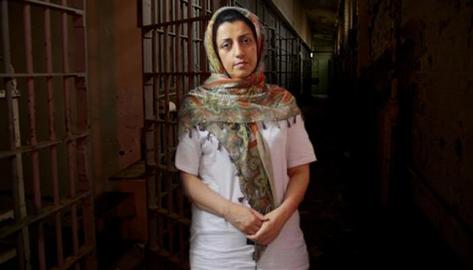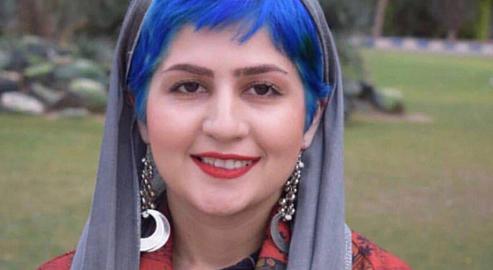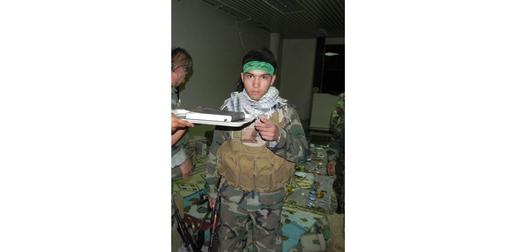The Iranian government has ignored pleas to deal with Covid-19 in Iran’s prisons, leaked documents reveal.
Amnesty International has obtained four letters revealing that senior officials from Iran’s Prisons Organization have urged the country’s Ministry of Health to provide resources to stop the spread of Covid-19 and treat inmates who have contracted or shown symptoms of the disease. The ministry has so far ignored the requests.
The news coincides with the transfer of jailed Australian-British academic Kylie Moore-Gilbert to Qarchak Prison, where Covid-19 cases are thought to be on the rise. It also directly contradicts claims from a former senior prisons official, who had described Iran’s measures to stop the spread of the virus in prisons as “exemplary.”
Appealing to the Ministry of Health, Prison Organization officials raised alarm about shortages in protective equipment, medicine, and cleaning and disinfectant products. According to Amnesty, the first letter was sent on February 29, with follow-up letters sent on March 25, May 12, June 14 and July 5.
“This is particularly alarming as the letters also note the presence of a highly vulnerable population in Iran’s prisons,” said Diana Eltahawy, Amnesty International’s Deputy Regional Director for the Middle East and North Africa. “The Iranian authorities must stop denying the health crisis in Iran’s prisons and take urgent steps to protect prisoners’ health and lives.”
Iran’s prisons are known for overcrowding, unsanitary conditions and ineffective medical services. In the current pandemic environment, says Eltahawy, these conditions are a “perfect breeding ground for Covid-19.”
The government’s failure to act directly contradicts statements made by the former head of the Prisons Organization praising Iran's efforts to protect its prison population. Asghar Jahangir, who is currently an advisor to the judiciary, told Tasnim News Agency on April 6 that prisoners enjoyed “better standards of health care and sanitation than they would in society” and that there had been no cases of the disease in Iran’s prisons.
Are Covid-19 Tests Being Carried Out in Prisons?
Iranian officials have repeatedly made false and misleading claims about the number of coronavirus tests being carried out in the country as a whole, and Iran’s prison officials are no exception: Jahangir also told the Iranian press that tests were being carried out in Iran’s prisons.
In July, concerns intenstified over the health of human rights activist Narges Mohammadi, who is currently being held in Evin Prison. Mohammadi has been showing symptoms of Covid-19 and was apparently tested, but the results of the test have not been communicated to her or her family.
Raha Bahreini, Iran researcher for Amnesty, says that, according to human rights organizations with contacts in prisons, testing is not being carried out in any regular manner. When a prisoner does show symptoms, she says, "they are left neglected for days and days, and are sometimes transferred to solitary confinement."
But Bahreini added that when testing was carried out, whether it's inside or outside prison, results are not released to the patient. Some of this, she says, could be part of an effort not to spread fear among prisoners and to reduce the amount of media coverage the matter attracts. Mohammadi, for example, was put on a ward with other people suspected of having coronavirus, but she was only tested after news of her situation was widely covered. Even so, the refusal to give her the results consistutes a further denail of her rights.
Amnesty reports that at least one prisoner who tested positive, Zeynab Jalalian, has been forcibly disappeared. Jalalian had been on hunger strike after her demands for medical treatment were ignored. She has not been heard from since June 25.
Bahreini also said when there have been deaths in prison, authorities have rarely said the deaths were a result of coronavirus, instead stating that the prisoner died from a heart attack or breathing problem. This echoes reporting of deaths outside prisons, too.
Iran’s large prison population — Amnesty reports it to be over 200,000 — includes many political prisoners, including Gonabadi Sufi dervishes and rights activist Sepideh Gholian, who has given her account of prison in a recently-published book, available in Persian and English.
On March 18, a day before the Iranian New Year, the judiciary announced that Supreme Leader Ayatollah Ali Khamenei had granted amnesty for a number of prisoners. The day before, judiciary spokesman Gholamhossein Esmaili, said “about 85,000 prisoners” had been granted temporary leave on March 17 to limit the coronavirus outbreak within prisons.
Several dual nationals are also currently being held on dubious charges of espionage and trying to overthrow the regime, including the academic Kylie Moore-Gilbert and Iranian-American Siamak Namazi. Iranian-British citizen Nazanin Zaghari-Ratcliffe is also still held in Iran, but has been granted temporary leave from prison.
visit the accountability section
In this section of Iran Wire, you can contact the officials and launch your campaign for various problems


























comments